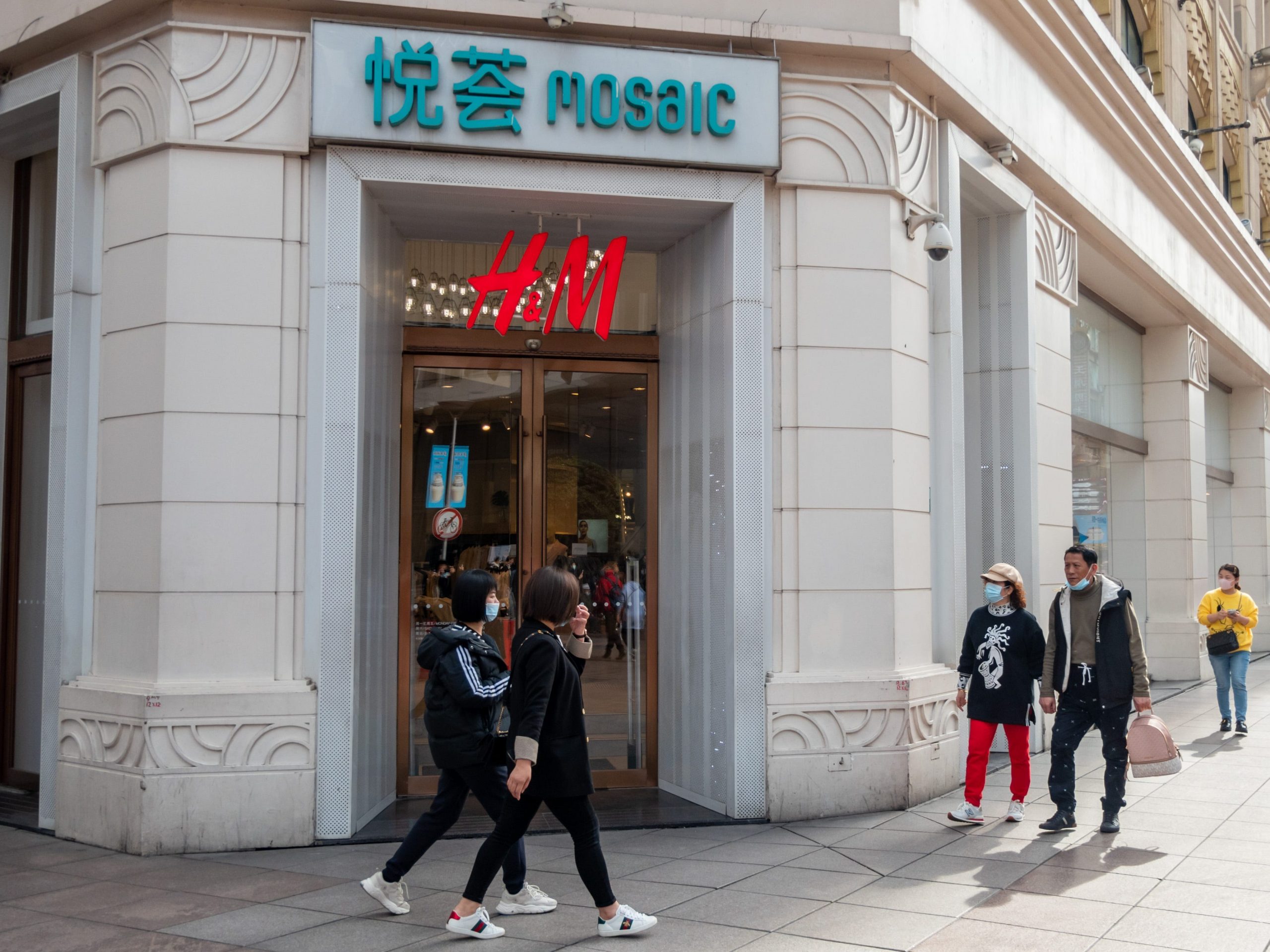
Wang Gang/VCG via Getty Images
- Fashion retailer H&M has released a fresh statement, calling China a "very important market."
- The company did not specify in the statement if it would start using Xinjiang cotton now.
- H&M was scrubbed clean last week from Chinese online shopping platforms as part of a mass boycott.
- Visit Insider's homepage for more stories.
Fashion retailer H&M has released a conciliatory statement in response to the Xinjiang cotton controversy, calling China a "very important market."
In the new statement, the brand said that it has a "long-term commitment" to China and vowed to "regain the trust and confidence" of customers, colleagues, and business partners in the country.
The Swedish fast-fashion brand is currently grappling with a mass boycott by Chinese online retailers and consumers alike, after an old statement from 2020 – where the brand took a stand against the use of "forced labor" in the production of Xinjiang cotton – re-surfaced.
In the 2020 statement, H&M said it would not source cotton from the Xinjiang Uyghur Autonomous Region and added it had terminated its relationship with a Chinese yarn company accused of using the "forced labor" of Uyghur Muslims. Additionally, the company said it was "deeply concerned by reports from civil society organizations and media that include accusations of forced labor."
While the company did not specify in Thursday's statement if it would start using Xinjiang cotton, the statement mentioned that the company wants to be a "responsible buyer, in China and elsewhere," and is willing to work with "all relevant stakeholders" to "jointly build a more sustainable fashion industry."
"Our company values are built on trust, respect, integrity, and dialogue. We wish to focus on our core business and on what we do best - bringing fashion and design to our customers all around the world," H&M said in the statement.
H&M was one of several big international brands, including Nike and Adidas, targeted by the Chinese online community last week after translations of its statement on human rights violations in Xinjiang were circulated on the Chinese social media platform Weibo.
The social media backlash that ensued from the post circulating on Weibo saw millions of comment threads spawning in a matter of hours. Some Weibo users called for a mass nationwide consumer boycott, writing: "Die, H&M, die."
This social media firestorm brand's listings wiped off popular Chinese shopping apps like Alibaba, Taobao, JD.com, and Pinduoduo. The geo-locations of H&M stores were also deleted off Baidu Maps - China's version of Google Maps - making it impossible for users to search for its retail store locales.